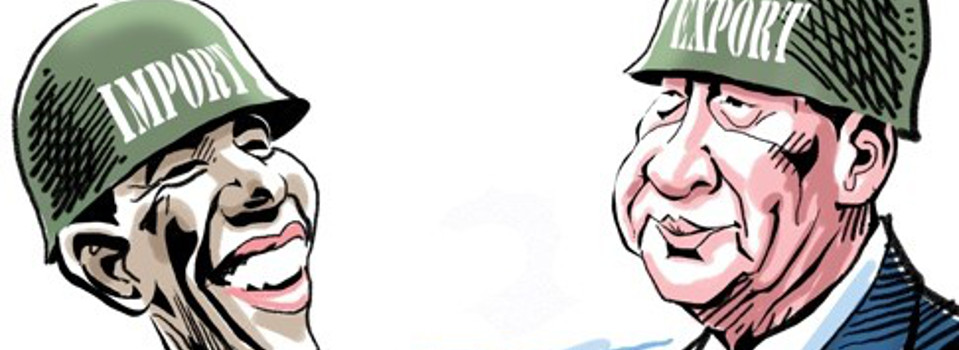Iraq issue fades as Democrat and Republican candidates lay out plans for economic recovery.
THE struggling US economy is emerging as the dominant issue in the race to the White House.
A brewing recession, rising oil prices and a swelling mortgage crisis at home have forced both Democrat and Republican presidential aspirants to tout plans for economic recovery as they head for another chaotic nomination battle this weekend in Nevada and South Carolina.
With no clear front runners in either camp, candidates are increasingly turning their attention to economic worries – which now head the list of voter concerns as Iraq slides off the front pages – giving undue advantage to some as the contest intensifies.
Democratic contender Hillary Rodham Clinton stood to gain the most political mileage.
In her rallies, the New York senator and former first lady has portrayed herself as the most prepared to deal with the current problems, giving a rosy picture of the economy during the 1990s when her husband Bill Clinton sat in the Oval Room.
“We know that times are tough. I am hearing from people, it is not just abstract economic talk,” Mrs Clinton told reporters earlier this week. “Too many Americans are hurting and they are looking for a president who will take leadership, run our government, manage the economy, jump-start a recovery.” Mrs Clinton has called for a range of policies as she appealed to her core supporters – blue-collar workers and women.
She is calling for a US$70 billion (S$102 billion) economic jump-start plan, which includes an emergency component to head off home foreclosures, and a US$25 billion emergency aid plan for families struggling with high heating bills.
She said the government should implement US$40 billion in tax relief to low and middle-income Americans. She had originally said the aid should be held in reserve if economic conditions worsened.
Accusing unscrupulous lenders of causing the sub-prime mortgage crisis, she also urged once again for a 90-day moratorium on home foreclosures and five-year freeze on interest payments.
Her closest challenger, Illinois senator Barack Obama, responded with a US$75 billion stimulus plan. This includes a US$250 tax cut for workers, a US$250 Social Security retirement fund bonus for older citizens and aid for states hit by lower tax revenues.
“The price of the American dream is going up. We’ve never paid more for health care or child care or college,” he said on Thursday. “It’s harder to save and retire. Too many Americans have lost faith that their leaders can or will do anything about it.”
The economy is a particularly sensitive issue in Nevada where the two candidates have been slugging it out for the caucuses on Saturday. Nevada has seen rising unemployment and has the nation’s highest home-foreclosure rate.
Currently, Mrs Clinton and Mr Obama are running neck and neck in the polls with the third Democratic candidate, former North Carolina senator John Edwards, running a distant third. Mr Edwards has been preaching economic populism.
With three different Republican candidates having won each of the first three major nominating contests, South Carolina presents another major test for the Republican Party to resolve what has been its most volatile race in 30 years.
Arizona senator John McCain is holding the lead over former Arkansas governor Mike Huckabee and Mr Mitt Romney, the former Massachusetts governor.
For the Republicans, the economy has also taken centre stage in the race – prompting candidates to highlight their economic credentials.
Mr McCain on Thursday offered a plan that would lower the corporate tax rate from 35 per cent to 25 per cent and provide other tax breaks aimed at making US businesses more competitive.
Rival Rudy Giuliani, who has focused most of his effort on the Jan 29 vote in Florida, has also proposed cutting the corporate tax rate to 25 per cent.
Mr Romney, a Mormon and millionaire businessman, used an optimistic economic pledge to win in his native state of Michigan but, according to polls, has not been able to take the lead on the issue.
He said on Thursday in South Carolina that the US Congress should take immediate action on an economic stimulus plan that includes a tax rebate.
Mr Mike Huckabee, the preacher-turned politician who is running on a message of economic populism, put the blame for economic worries on Washington while seeking the votes of South Carolina steelworkers.
With the spectre of recession looming, expect the stuttering US economy to feature as a theme on the stump of presidential candidates in the weeks and months to come.

